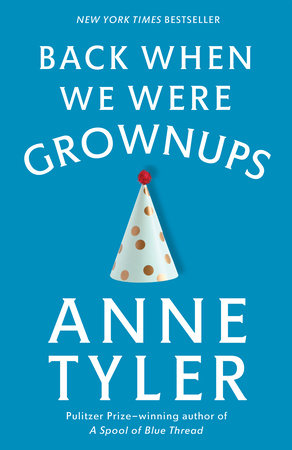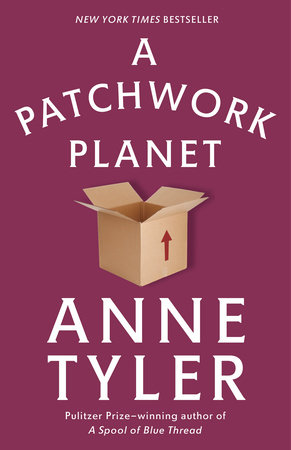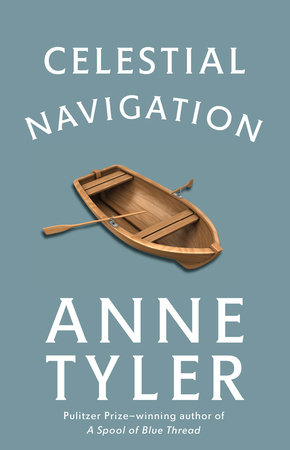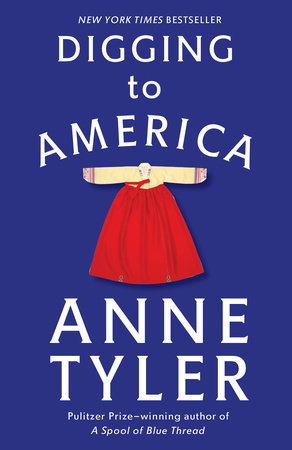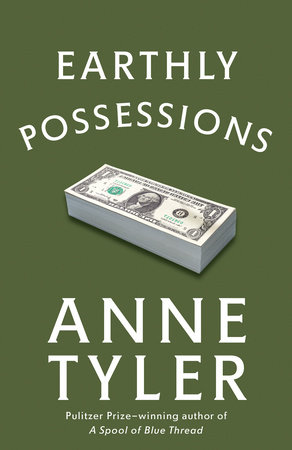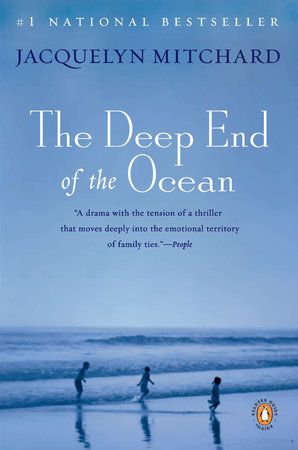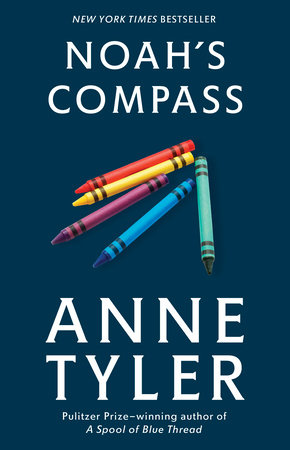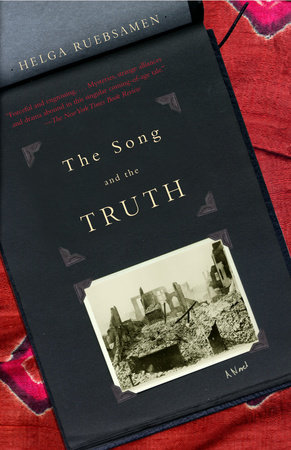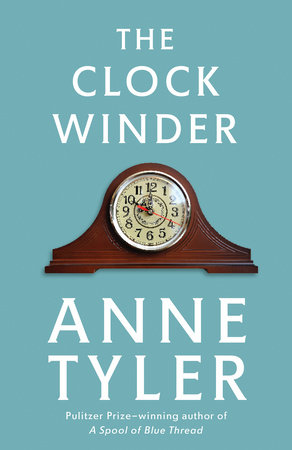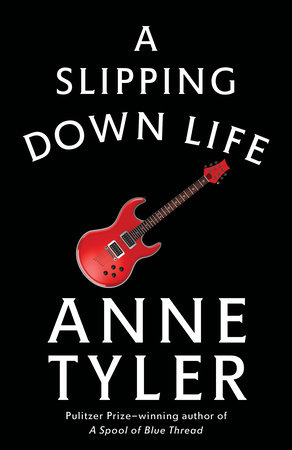Q: What was the genesis of this novel? Did a particular character
or situation come to mind first?
AT: I plotted Back When We Were Grownups just after emerging
from a year in which there had been several losses and serious illnesses
in my family. I wanted my next novel to be full of joy and
celebration, which is how I ended up with a main character who
earned her living throwing parties.
That a sense of loss shows through anyway, at a later point in
the book, is proof that the subconscious always tends to triumph in
the end.
Q: Why did you choose this title for the novel? Were there others
that you discarded along the way?
AT: It’s one of my few organic, natural-born titles; it was always
there, on its own
Q: Has Rebecca really become the wrong person?
AT: Well, of course she’s become a different person. But not the
wrong one, as it turns out.
Q: Why is it so difficult for Rebecca to see that she chose Joe
and the Davitches just as they chose her?
AT: Rebecca is no more astute–or less–than most of us about her
reasons for doing things. If people were fully conscious of their
motives, novelists wouldn’t have anything to write novels about.
Q: Would you agree that Rebecca is unaware, on some important
level, that she has become the center of the Davitch family?
AT: Yes. She’s a very modest and unassuming woman; it wouldn’t
occur to her that she could be so important to other people.
Q: Has Rebecca finally come to terms with the family and the
life she ended up with? Will she ever stop feeling like an outsider,
like a not-a-Davitch?
AT: The point at which I decide a novel is finished is the point
where I say, "My character has arrived, and I can picture him or her
more or less settled there forever." So yes, by the end of the book
she has come to terms with her life. (She’s still not-a-Davitch, but
that’s immaterial.)
Q: Did Rebecca ever have a chance to truly mourn Joe, given
the incredible responsibilities that were thrust upon her with his
death?
AT: Even with all those responsibilities, she did mourn–but I
think of it as a kind of stupor of mourning, unlike the more
reflective kind of grief that she experiences toward the end of the
novel.
Q: Poppy refuses to hide his grief over his dead wife, which perturbs
many of the Davitches. Is his behavior, like the constant
reciting of Aunt Joyce’s funeral poem, troubled or simply
honest?
AT: I certainly didn’t mean to imply he was troubled. This is his
particular response to loss–the opposite, or maybe the underside,
of Rebecca’s response to her own loss.
Q: Rebecca thinks she would have stayed with Will if Joe had
not swept her off her feet. Was this a likely scenario?
AT: That’s the kind of question I trust readers to know the answer
to once they’ve read the novel.
Q: "Their [Rebecca and Will’s] past was a bolt of fabric they had
scissored up and divided between them." What do they gain
from their exchange of memories?
AT: It’s more a question of what the reader gains: a sense, I hope, of
how fractured and subjective our interpretation of our past is.
Q: Could the Davitches–all of them–have helped Will open
up to the world? Or is it too late for him?
AT: Some people really are not capable of change. I think Will is
one of them. Any effort the Davitches might have made would
probably have just overwhelmed him.
Q: Rebecca’s treatment of Will–rejecting him for a second time
after inviting him into her life–could be considered cruel. Do
you agree?
AT: It was painful, yes. ("Cruel" implies too much of an intent to
give pain.) I felt downright guilty when I wrote that scene. But for
Rebecca to have stayed with him would have been even more
painful. Sometimes, you just have to make that choice.
Q: We know how Zeb feels, but it is unclear how Rebecca feels
about him. Might something romantic ever happen between the
two of them?
AT: Someday, Zeb and Rebecca are going to marry. The Davitches
will be taken aback at first, but they’ll warm to the idea wholeheartedly
as soon as they’ve adjusted.
Q: Rebecca reflects that "there were no perfect parties." Why
are people, like so many of the Davitches, often unwilling to recognize
how much hard work celebrations are?
AT: It wasn’t the hard work of celebrations that I had in mind;
it was the fact that there is no perfect event, period–that
every human interaction is necessarily a mixed and mingled
affair.
Q: Rebecca’s disapproving mother continues to exert a powerful
influence over her as does Rebecca over her daughters. Is it possible
to ever stop being your parent’s child or your child’s
parent?
AT: Yes, on occasion. But for a novelist the people who don’t stop
are much more interesting.
Q: Do you ever find yourself getting angry at or having trouble
writing for thorny and difficult characters like Patch and
Rebecca’s mother?
AT: In real life I might be very annoyed by some of my characters. I
find it a great deal easier to be tolerant of them on paper.
Q: Once you have created a fictional universe, is it hard to turn
it over to the rest of the world? Do you feel protective of your
characters?
AT: I always have a spell of maternal anxiety when a manuscript is
finally on its way to New York (where, for the first time, someone
other than me will see it). I picture my characters riding the train,
independent of me at last, excited and shy and unsure of themselves.
But once they’ve arrived and been accepted, I tend to forget
about them.
Q: If you had to choose a favorite character in this novel,
besides Rebecca, which would it be and why?
AT: I’m very fond of Peter. I like his curiosity and is active mind; I
think he’s going to grow up to be a very interesting young man.
Q: What other books would you suggest for a reading group discussion?
AT: The most rewarding choice for reading groups would be a book
that they could argue about passionately among themselves.
Christina Stead’s The Man Who Loved Children,for instance–people
have always loved that book or hated it. It could make for a
wonderfully lively discussion.
Q: Are you working a new novel?
AT: I’m in the early stages of a novel about an unhappy marriage–
a subject that intrigues me because it provides such a good opportunity
to watch different types of characters grating against each
other. It begins in 1941, and I’m finding it an unexpected pleasure
to live in another time for a while.
